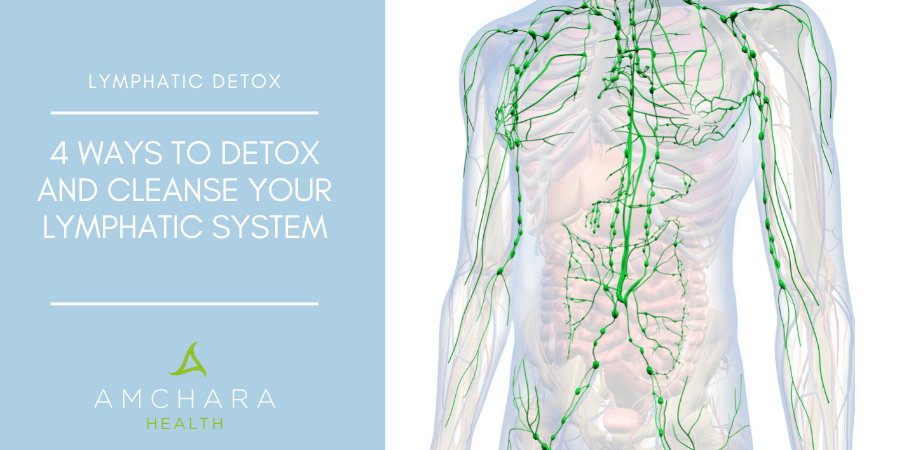Topics Covered in this article:
Choosing to do a detox can be a life changing decision.
The accumulation of toxins and wastes within the body has been linked to several issues and may play a role in hormone imbalances and the development of certain degenerative conditions.
Although the liver carries out detoxification on a daily basis, taking a step back from your usual diet and lifestyle and opting for a detox plan can enhance body detoxification.
One of the many reasons people may either put off doing a detox, or end it early, is due to potential unwanted symptoms.
Many of these symptoms indicate that toxins are being mobilised, dealt with and sent for elimination – this is a good thing!
We always take an evidence-based approach and aim to provide you with actionable knowledge and tips to help you on your journey to optimal health.
In this article we take a look at some useful tips to manage detox symptoms.
The process of detoxification
Detoxification and elimination involves several organs including the liver, bowels, skin, lymphatic system, kidneys and bladder and even the lungs.
Toxins are stored in fat tissue and once mobilised need to be neutralised, this requires several essential nutrients.
Once they are neutralised they are made water soluble, ready for excretion.
There are several routes for the elimination of toxins, explaining why a diverse set of symptoms may occur.
Detox symptoms and solutions
#1.
Headaches – these can range from a mild fuzzy head through to a migraine.
They can be worse if you are a heavy caffeine drinker and have gone cold turkey for the detox and can often be a sign of dehydration or a need for additional water. Low blood sugar may also be playing a role (1).
Tip – maintain good hydration. It sounds simple but drinking plenty of water during a detox is vital for flushing out the toxins.
Aim to drink around two litres of water a day, in addition to juices or smoothies.
Make sure you rest, if low blood sugar is an issue you want to avoid exerting yourself and using up more energy.
#2.
Fatigue – feeling tired all the time is common and is a sign that your body is working hard. Many detox plans involve a drastic reduction in calories and so the body has to tap into stored energy – this can take time and before fat is burnt as fuel there may be a dip in energy.
Tip – take it easy! Detoxification is not a time to be busy with normal day to day activities and should be a time for reflection and rest. If you have put time aside for a detox then make the most of it – take a nap if that’s what your body is telling you it needs.
#3.
Nausea – not a very pleasant symptom but a good indication that the liver is doing its job. Toxin release can be the culprit of a general queasy feeling. If the nausea is severe or there is vomiting it may indicate a deeper issue.
Tip – sip on water with a squeeze of lemon, a refreshing drink and the lemon juice further aids the liver. Adding a slice of ginger may also help lessen the nausea (2). Relaxing breathing techniques can also help to take thoughts away from the nausea. Further advice from an experienced Personalised Health practitioner can guide you on any deeper issues related to nausea and vomiting.
#4.
Brain fog – this can really affect how you think, feel or communicate and can lead to lost words or jumbled sentences. Poor concentration can affect forward planning on a detox and may cause issues if you are still trying to work.
Tip – don’t even try to work when doing a detox! Keep your mind active with creative activities that can be interrupted if concentration is affected. Inform friends and family that you may not be as sharp as normal for the detox period. Use meditation to focus the mind. The brain fog will clear as toxins are eliminated.
#5.
Disrupted sleep – this one is tough as sleep is vital for the cleansing, repair and rejuvenation of body tissues; a lack of sleep can severely affect both physical (3) and mental health (4). During a detox disrupted sleep may occur for several reasons and in the initial period it may be down to the switching of fuels for energy. As glucose stores are used up the body releases hormones that can keep you alert. Once the body switches to fat burning these hormones may reduce. In this period there may also be a degree of hunger that can prevent sleeping.
Tip – set the scene for bed time and have a relaxing routine prepared. This could include a massage, warm bath with magnesium salts (which also aid detoxification), reading your favourite book, using essential oils like lavender (5) or sleep inducing techniques like progressive relaxation or meditation.
#6.
Mood swings – low mood, irritability, anger and weepiness can be common, and it isn’t unusual to have an ‘emotional detox’ when eliminating toxins. Old feelings can be brought to the surface, even if you thought they had been dealt with.
Tip – observe and acknowledge these feelings. They are a part of the detox and if possible, aim to let go of troublesome emotions. Talking to a close friend or relative can sometimes help and don’t be afraid to let it out. Use a punch bag if you experience anger, cry if you feel sad and watch a light hearted film if you feel low. Activities such as yoga, mindfulness or even simply writing a gratitude journal can put things into perspective and help to balance emotions.
#7.
Bad breath – bacteria may build up in the mouth as quite often during a detox less saliva is produced. This is often down to a lack of chewing food. The bacteria in the mouth may cause an unpleasant odour but remember this can also indicate toxin mobilisation.
Tip – use a tongue scraper once or twice a day to remove debris on the tongue and brush the teeth 2-3 times a day. Flossing in between teeth ensures there is no leftover food particles that will attract bacteria. A salt water gargle can be useful as salt has natural antiseptic properties. An ‘oil pulling’ mouth wash using virgin coconut oil can help reduce plaque formation, gingivitis and may reduce odour forming bacteria (6).
Experiencing symptoms during a detox can be off-putting but needn’t mean the detox needs to be stopped.
Try our simple tips next time you detox and see the benefits.
You will find you experience less symptoms if you detox regularly rather than once every now and then.
This doesn’t need to be the end of the article!
With your comments we’d love to continue the conversation.
Let us know your top tips to help manage detox symptoms.
READ THIS NEXT:




